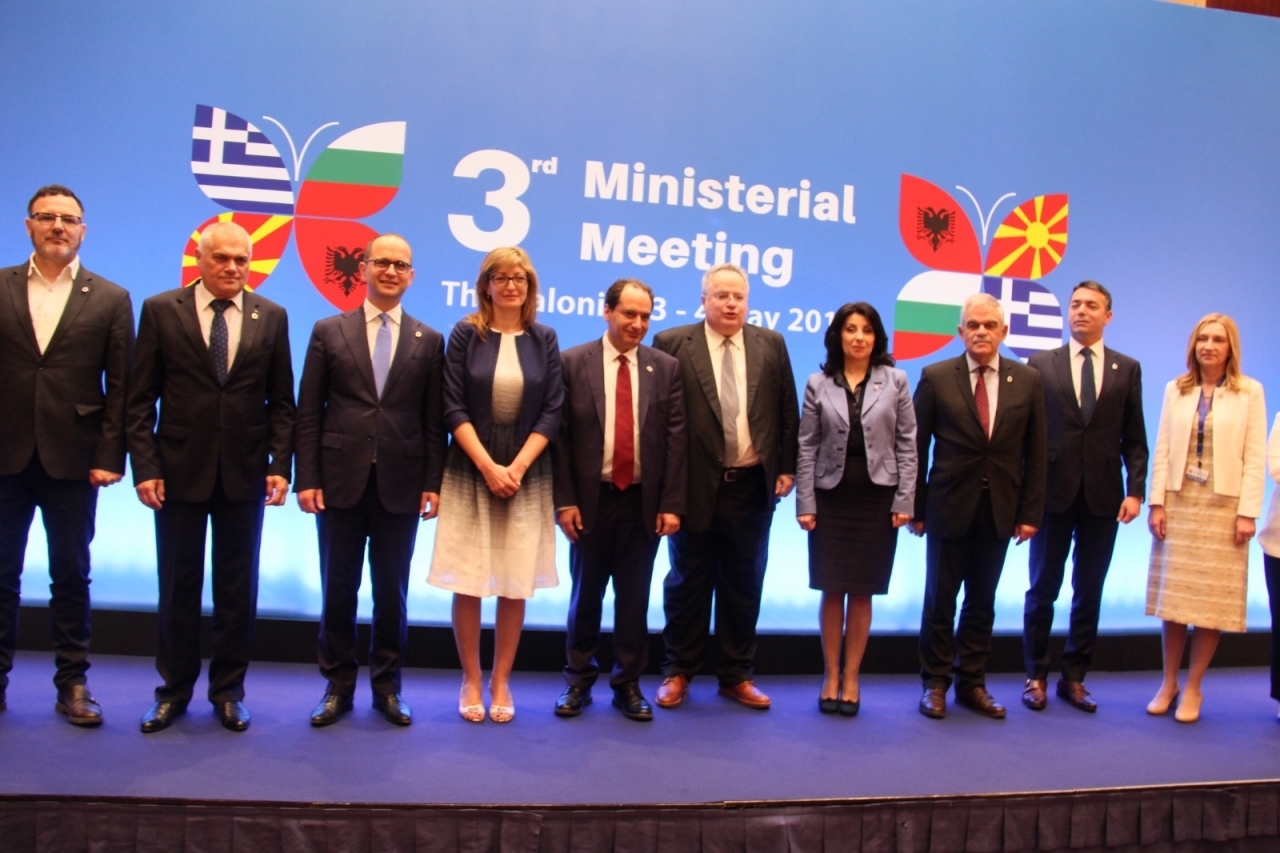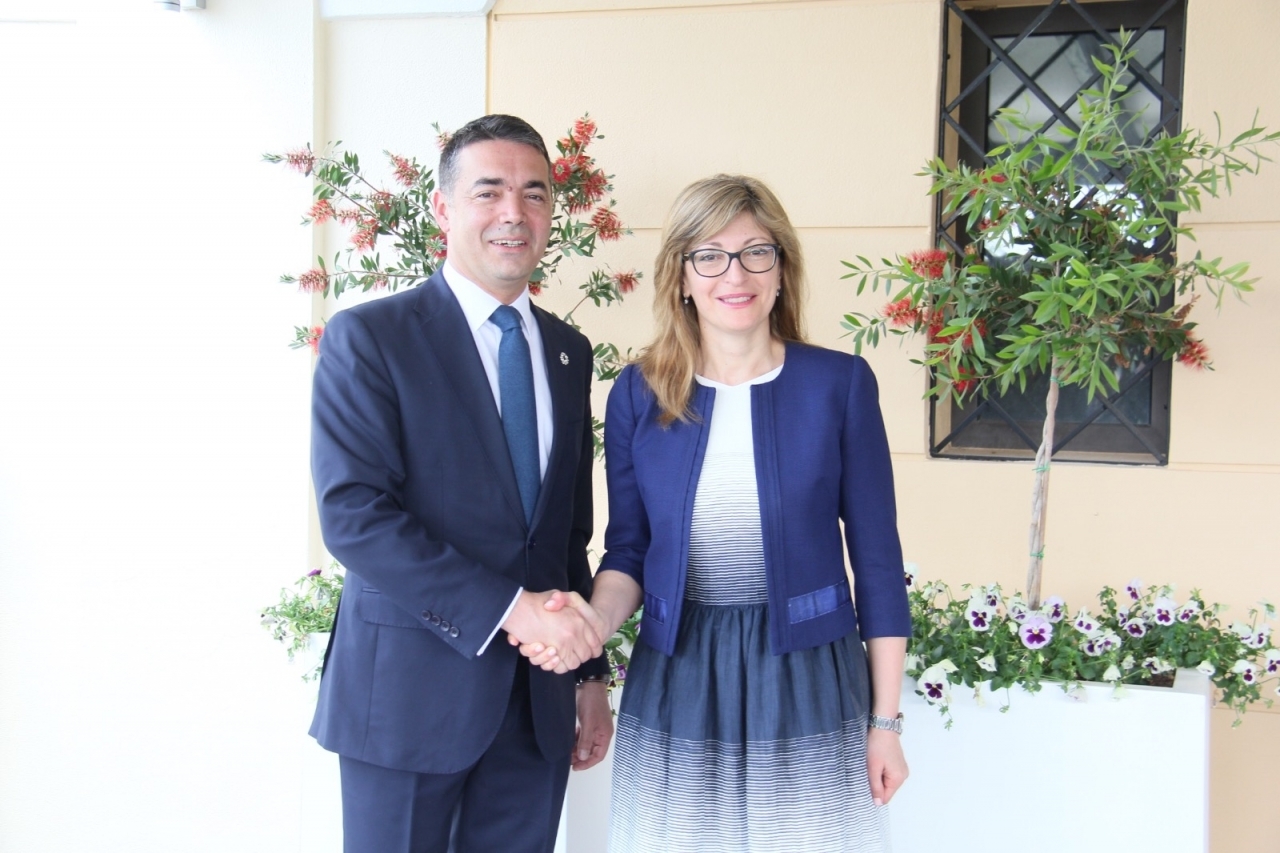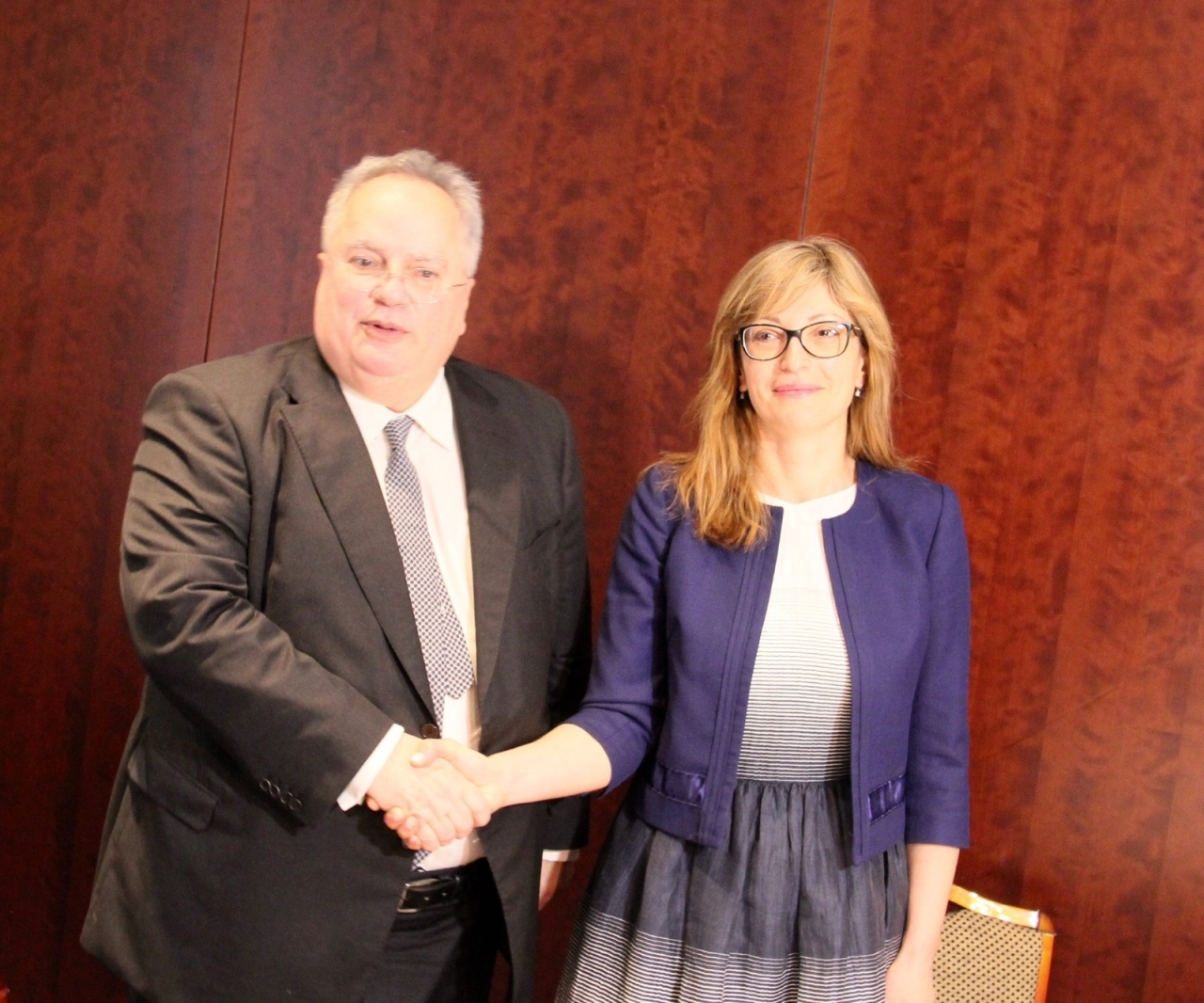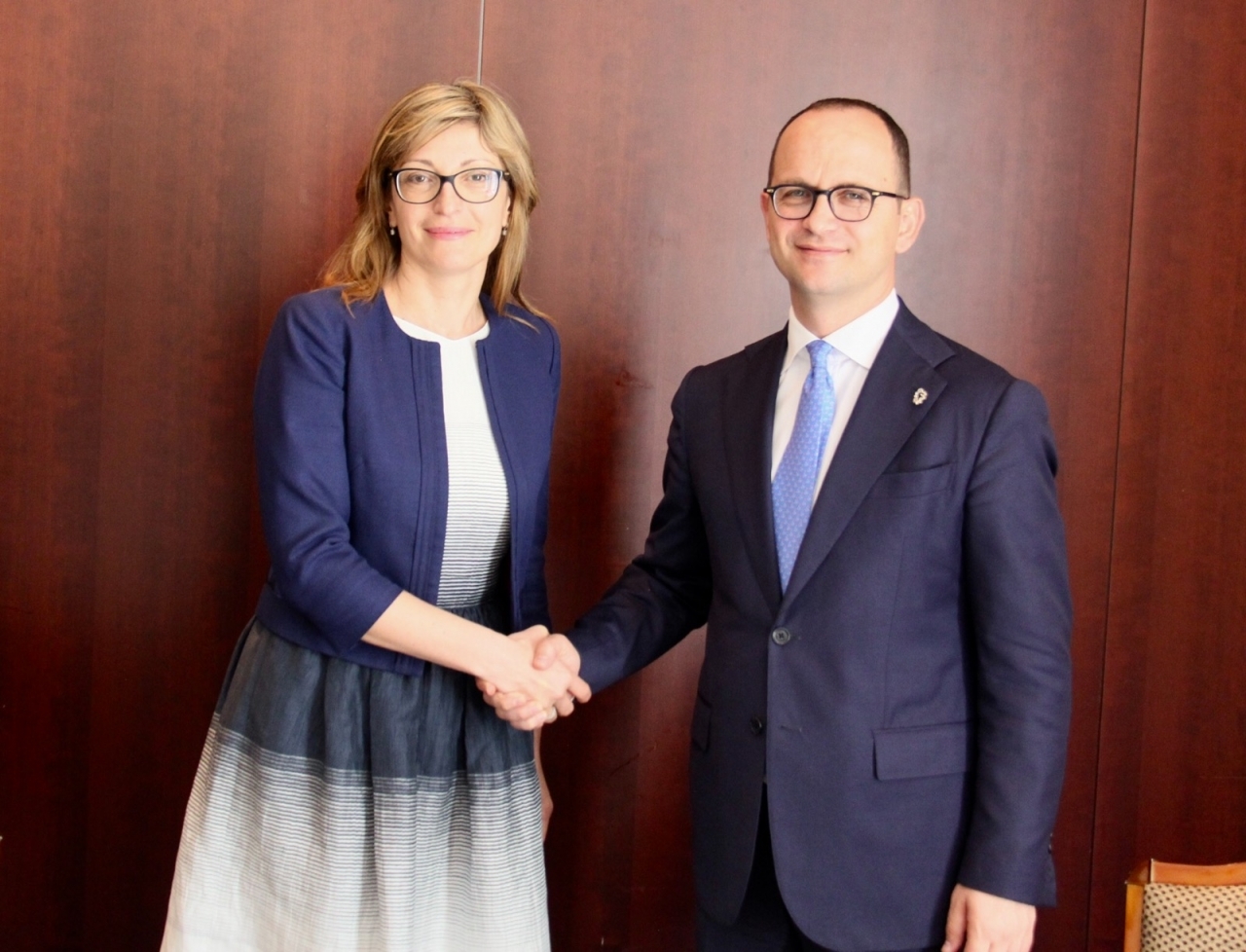Top Diplomats of Bulgaria, Albania, Greece and Republic of Macedonia Discuss Deepening of Cooperation between their Countries
04 May 2018 News
Conferring in Thessaloniki, Foreign Ministers Ekaterina Zaharieva of Bulgaria, Ditmir Bushati of Albania, Nikos Kotzias of Greece and Nikola Dimitrov of the Republic of Macedonia discussed ways of improving cooperation between their countries in all aspects of politics, the economy, culture, education and civil society.
This was the third meeting in such a format. Delegations of the four Balkan countries' interior and transport ministries also got together this time, in addition to the ministers of foreign affairs.
During the discussions, the Bulgarian Presidency of the EU Council was credited by all participants for placing the Western Balkans in the focus of the European Union, which gave the entire region chances to improve its connectivity in all aspects of the economy and life in general.
“We, the Balkan countries, have come to realize the importance of integrating, especially with the six Western Balkan countries. This is also related to the European perspective of the six countries,” Deputy Prime Minister and Foreign Minister Ekaterina Zaharieva said. “I would like to thank Nikos for Greece’s support in this respect, and I am glad that the process of our neighbours’ integration became irreversible.”
“It all started from here, from Thessaloniki, in 2003. Unfortunately, during those 15 years the EU has been meeting once every two years with Africa, with Latin America, with Asia, but it still meets with the Western Balkans once in 15 years. This is bad. Apart from the political conclusions, we propose a series of practical measures which we want to be included in the Sofia Declaration after the Summit in May: connectivity, security, economy, rule of law," the chief Bulgarian diplomat went on to say.
Her colleague Nikola Dimitrov cited the signing of the Friendship Treaty between Bulgaria and Macedonia as an example of fine cooperation. “What we have achieved with Ekaterina has had a direct impact on all spheres of life even before the signing of the Friendship Treaty. Tourism, trade, investments have picked up substantially.”
At the quadrilateral meeting, Zaharieva proposed that the four foreign ministries' political directors meet on a regular basis and that the economy ministers be invited to join the next ministerial. The ministers also discussed a number of issues on the international and regional agenda, on which the four countries can cooperate more closely.
Deputy Prime Minister Ekaterina Zaharieva also held a bilateral meeting with her counterpart of the Republic of Macedonia Nikola Dimitrov, at which it emerged that the complements of the joint commissions under the Treaty of Friendship, Good-Neighbourliness and Cooperation are ready and will be presented by the two countries’ governments next Wednesday.
The multidisciplinary commission, which will discuss a number of matters of bilateral interest, including history and education, will have seven members from each country. Ministers Zaharieva and Dimitrov agreed that this commission will hold its first meeting in Sofia.
Bulgaria will also host the meetings of the other, intergovernmental commission, which will review the Treaty’s implementation once a year. It will be chaired by the foreign ministers and will include representatives of almost all ministries. Its first meeting will precede the next joint meeting of the two countries’ cabinets.
Conferring with Greek Foreign Minister Nikos Kotzias, Bulgarian Deputy Prime Minister Zaharieva raised the issue of Bulgarian nationals who have been convicted or charged in Greece of offences or administrative violations involving vehicles they had long sold or automobiles they rent to third parties. Minister Kotzias assumed a commitment that next week, at the Ministry of Foreign Affairs in Athens, his diplomats will receive a Bulgarian Embassy team which will detail them on all such cases.
Last year the Ministry of Interior took steps for resolving such cases by interfacing the notaries’ offices with the Traffic Police. Thus, each purchase and sale of a motor car is immediately recorded in the Traffic Police system. A solution to the pre-existing cases, however, has yet to be found.
A number of bilateral issues and Albania’s further steps after the European Commission recommended to the Council to approve the start of accession negotiations, as well as Tirana’s expectations of the Sofia Summit, topped the agenda of a discussion between the Deputy Prime Minister and Albanian Foreign Minister Ditmir Bushati.



